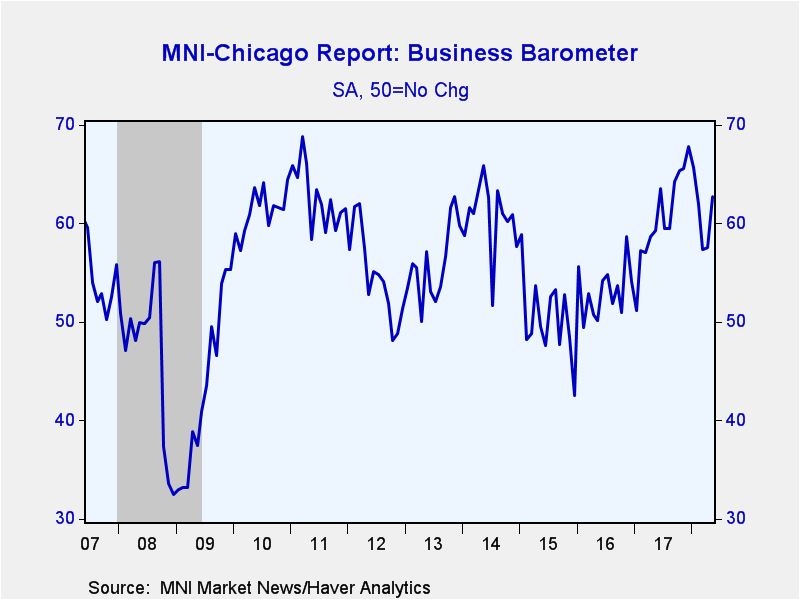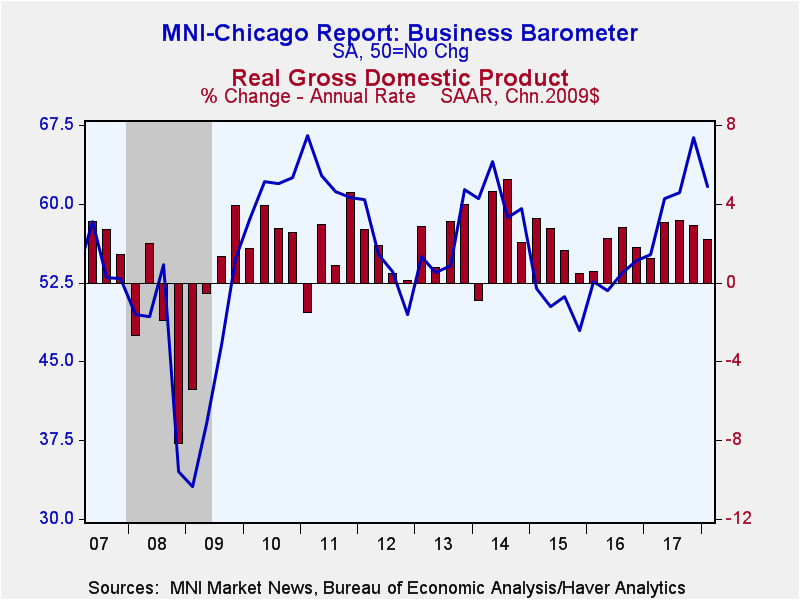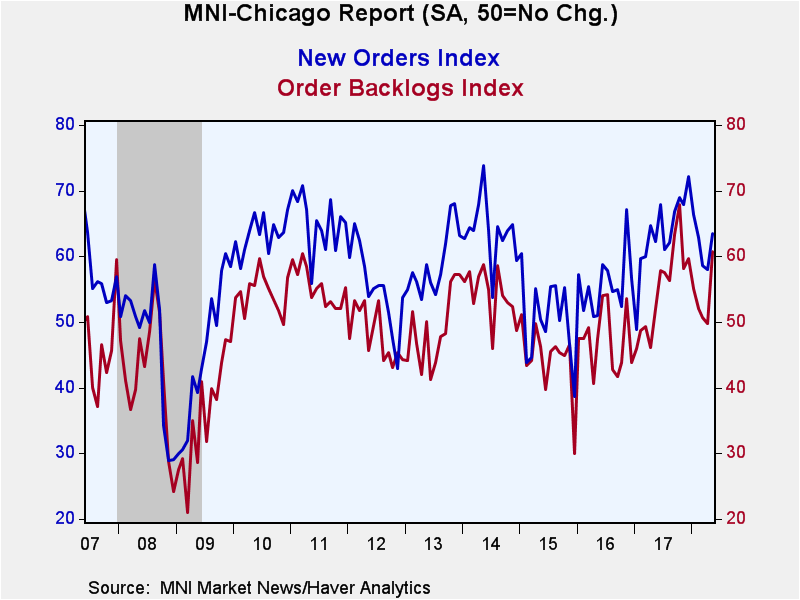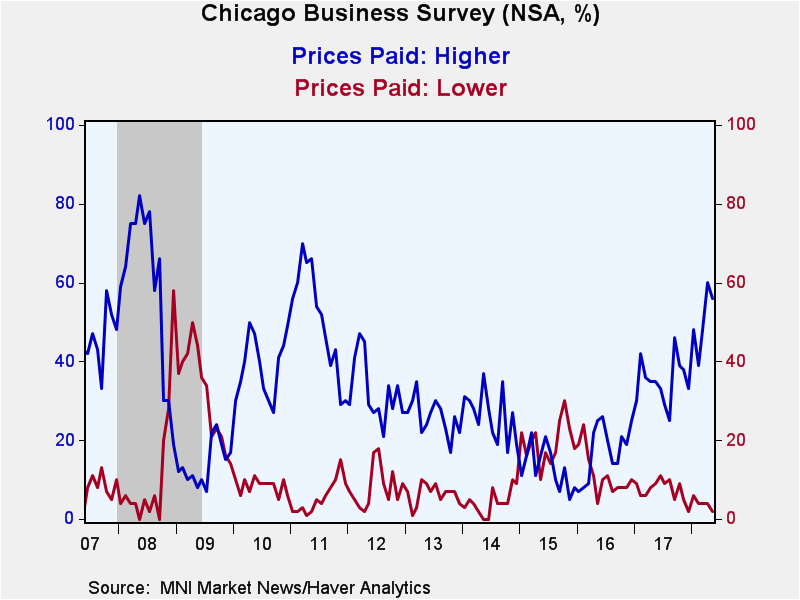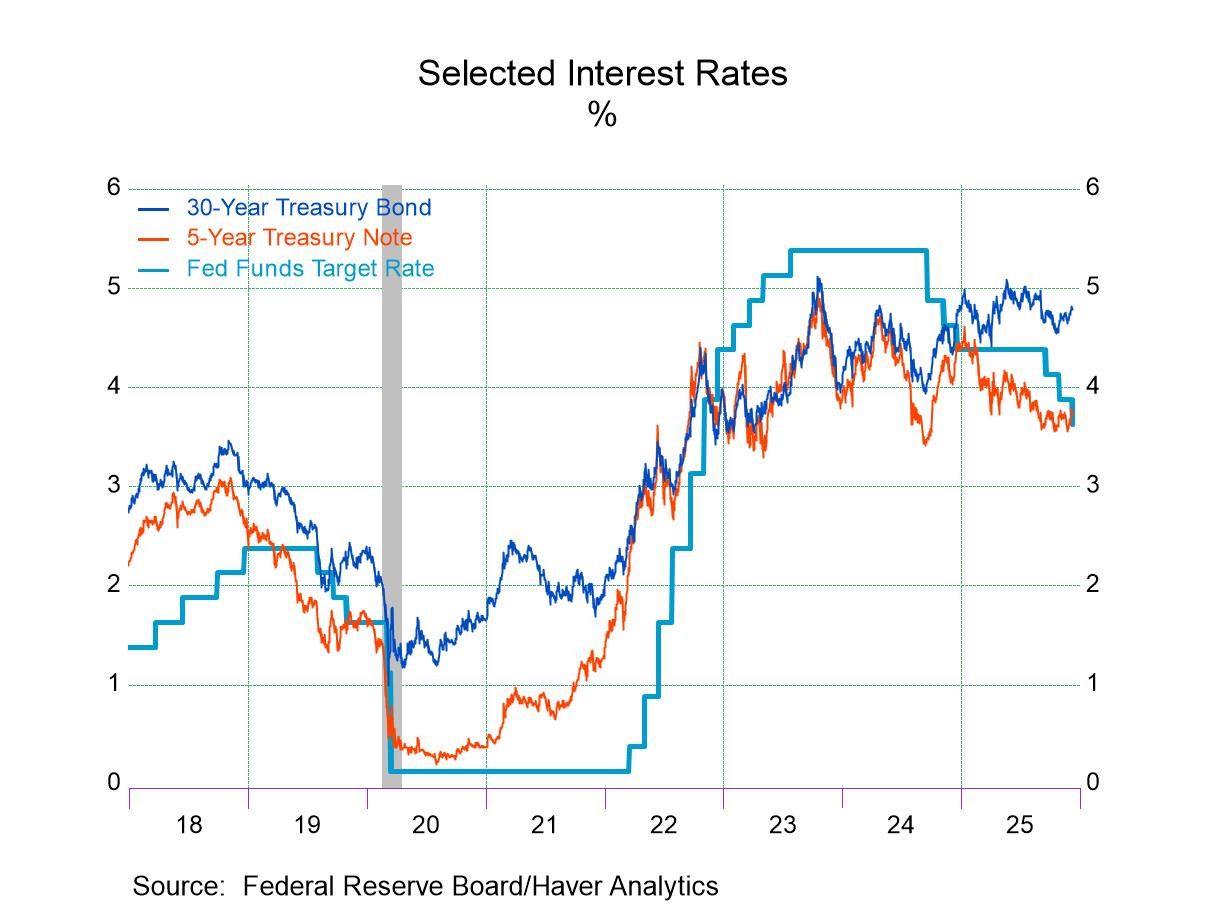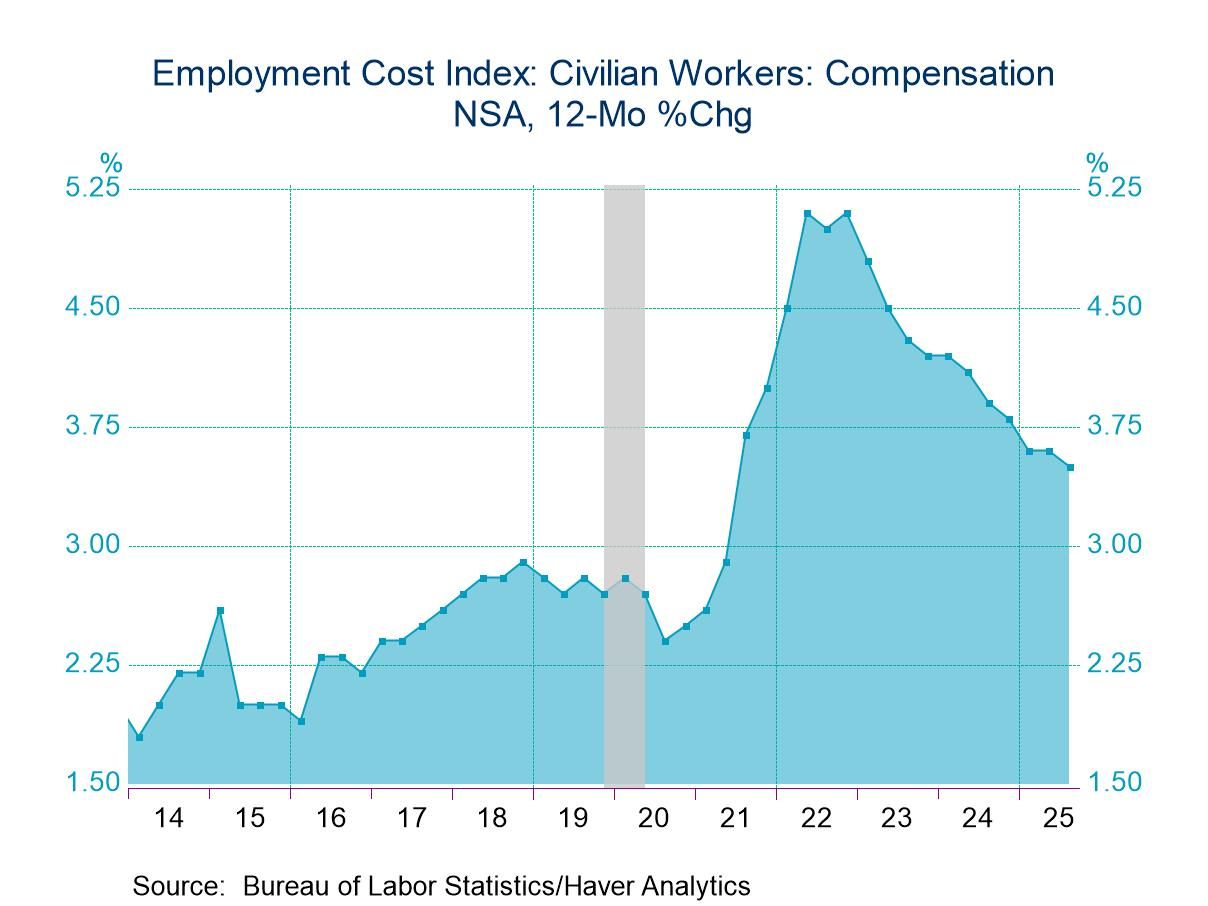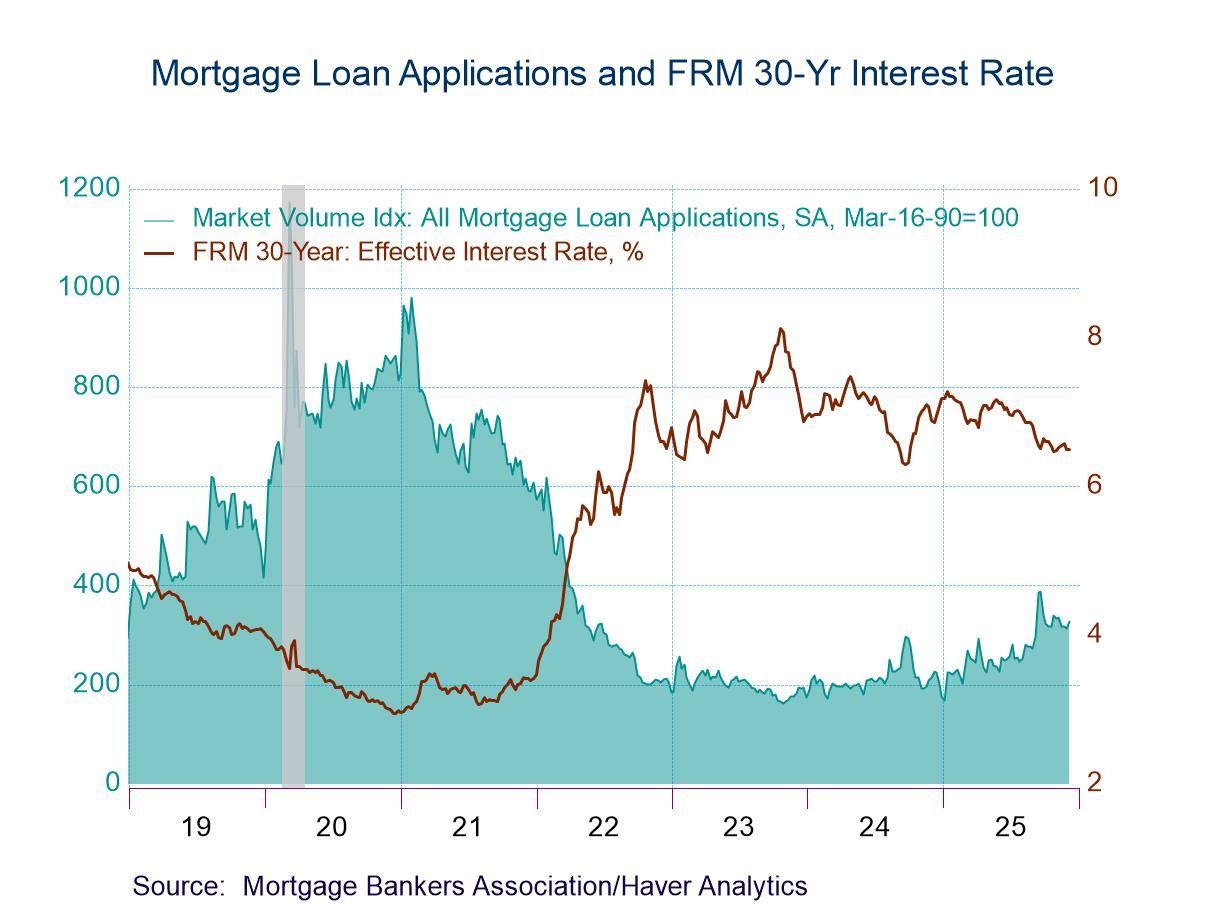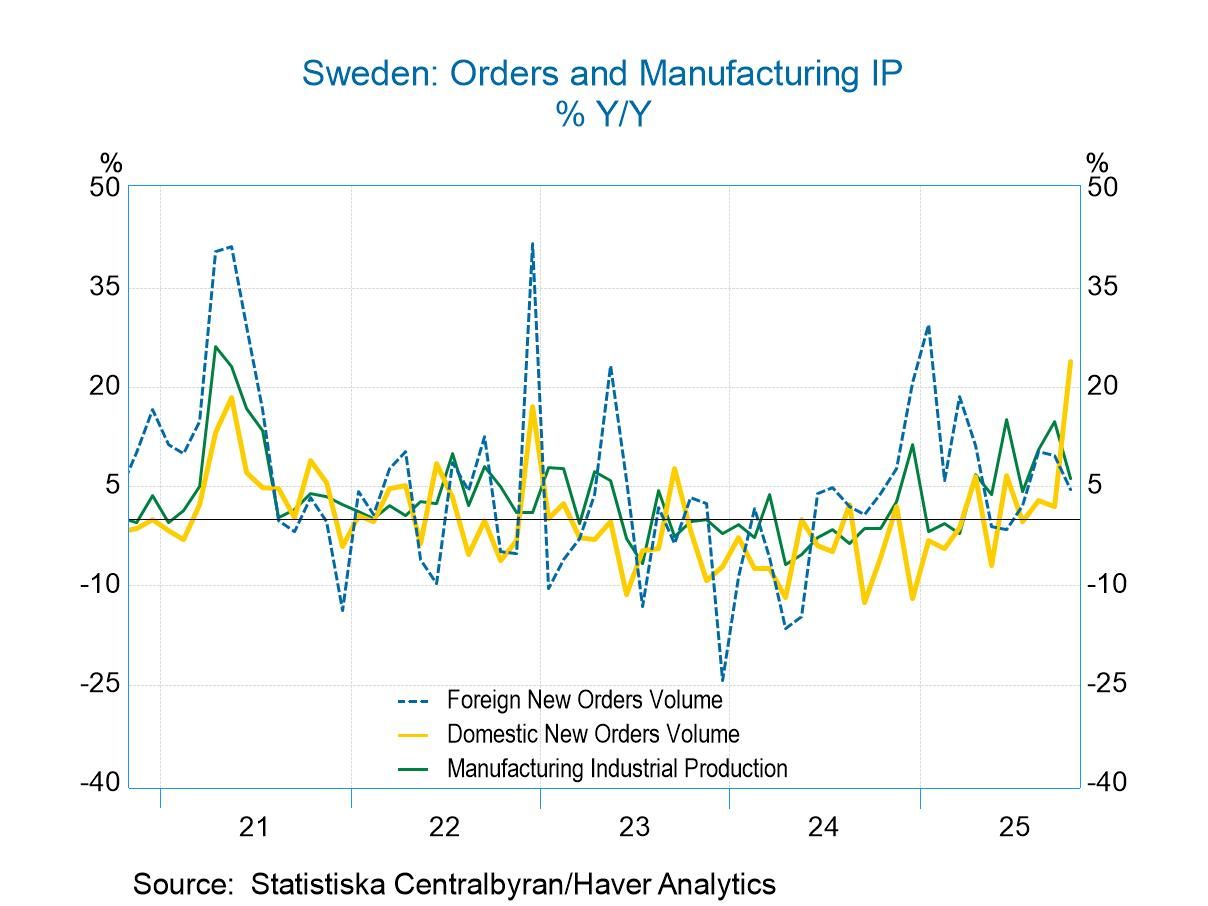 Global| May 31 2018
Global| May 31 2018Chicago Purchasing Managers Index Rebounds Sharply
Summary
The Chicago Purchasing Managers Business Barometer rebounded sharply in May, with the index reaching 62.7 following readings near 57.5 in March and April. The Action Economics Forecast Survey had anticipated only a modest rise to [...]
The Chicago Purchasing Managers Business Barometer rebounded sharply in May, with the index reaching 62.7 following readings near 57.5 in March and April. The Action Economics Forecast Survey had anticipated only a modest rise to 58.1. The Chicago Purchasing Managers figures are diffusion indexes where readings above 50 indicate growth.
Haver Analytics constructs an ISM-Adjusted index (combining Chicago-area new orders, production, employment, supplier deliveries, and inventories) with similar methodology as the ISM Composite Index. This index increased by 3.1 points to 60.9, which is consistent with healthy economic growth.
The rise in the overall Chicago index reflected solid gains in several components. Production reversed the previous two month slide by rising 6.0 points to a healthy 65.0. New orders similarly bounced back to 63.5. However, the biggest rebound occurred in order backlogs, which jumped 11.0 points to 60.7. Order backlog readings above 60 are rare. Meanwhile, delivery times remained slow (a positive indicator for growth) with a reading of 66.4.
Rebounds in the employment and inventory indexes were more muted. In terms of jobs, twenty-four percent of firms (NSA) reported more workers, while only fourteen percent reported fewer.
The prices paid measure edged down slightly in May, but remained very high at 77.1. Readings in the past two months have been the highest since 2011. Fifty-six percent of purchasing managers reported paying higher prices, while only two percent paid lower prices. This skewed result probably reflected the recent rise in energy prices.
The MNI Chicago Report is produced by MNI/Deutsche Borse Group in partnership with ISM-Chicago. The survey covers a sample of over 200 purchasing professionals in the Chicago area with a monthly response rate of about 50%. Summary data are contained in Haver's USECON database, with detail including the ISM-style index in the SURVEYS database. The Consensus expectations figure is available in AS1REPNA.
| Chicago Purchasing Managers Index (%, SA) | May | Apr | Mar | May '17 | 2017 | 2016 | 2015 |
|---|---|---|---|---|---|---|---|
| General Business Barometer | 62.7 | 57.6 | 57.4 | 59.3 | 60.8 | 53.1 | 50.3 |
| ISM-Adjusted General Business Barometer | 60.9 | 57.8 | 59.3 | 59.0 | 59.0 | 52.0 | 51.6 |
| Production | 65.0 | 59.0 | 55.2 | 62.7 | 64.3 | 54.7 | 52.5 |
| New Orders | 63.5 | 58.0 | 58.6 | 62.2 | 63.5 | 55.7 | 50.4 |
| Order Backlogs | 60.7 | 49.7 | 50.7 | 52.0 | 55.2 | 47.2 | 44.4 |
| Inventories | 54.9 | 53.8 | 59.5 | 55.2 | 54.9 | 47.2 | 52.1 |
| Employment | 54.7 | 52.1 | 59.4 | 55.9 | 52.9 | 49.4 | 50.3 |
| Supplier Deliveries | 66.4 | 66.0 | 63.8 | 59.1 | 59.4 | 52.8 | 52.6 |
| Prices Paid | 71.5 | 75.9 | 69.9 | 58.2 | 64.0 | 53.2 | 46.8 |
Peter D'Antonio
AuthorMore in Author Profile »Peter started working for Haver Analytics in 2016. He worked for nearly 30 years as an Economist on Wall Street, most recently as the Head of US Economic Forecasting at Citigroup, where he advised the trading and sales businesses in the Capital Markets. He built an extensive Excel system, which he used to forecast all major high-frequency statistics and a longer-term macroeconomic outlook. Peter also advised key clients, including hedge funds, pension funds, asset managers, Fortune 500 corporations, governments, and central banks, on US economic developments and markets. He wrote over 1,000 articles for Citigroup publications. In recent years, Peter shifted his career focus to teaching. He teaches Economics and Business at the Molloy College School of Business in Rockville Centre, NY. He developed Molloy’s Economics Major and Minor and created many of the courses. Peter has written numerous peer-reviewed journal articles that focus on the accuracy and interpretation of economic data. He has also taught at the NYU Stern School of Business. Peter was awarded the New York Forecasters Club Forecast Prize for most accurate economic forecast in 2007, 2018, and 2020. Peter D’Antonio earned his BA in Economics from Princeton University and his MA and PhD from the University of Pennsylvania, where he specialized in Macroeconomics and Finance.


